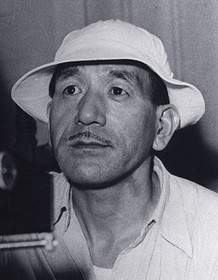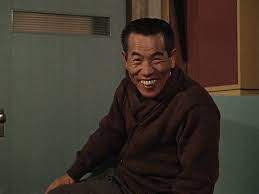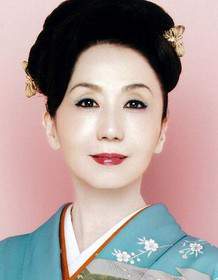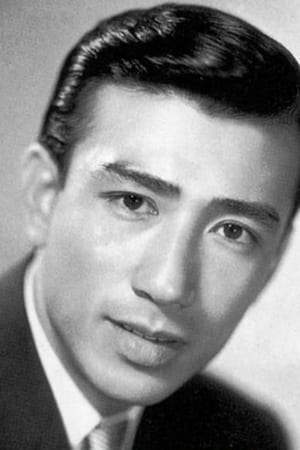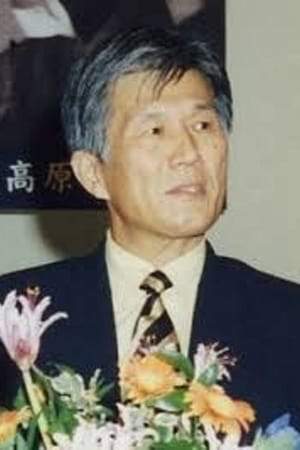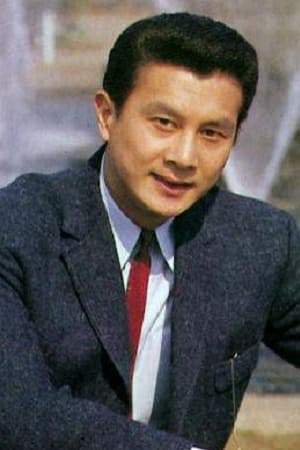An Autumn Afternoon 1964
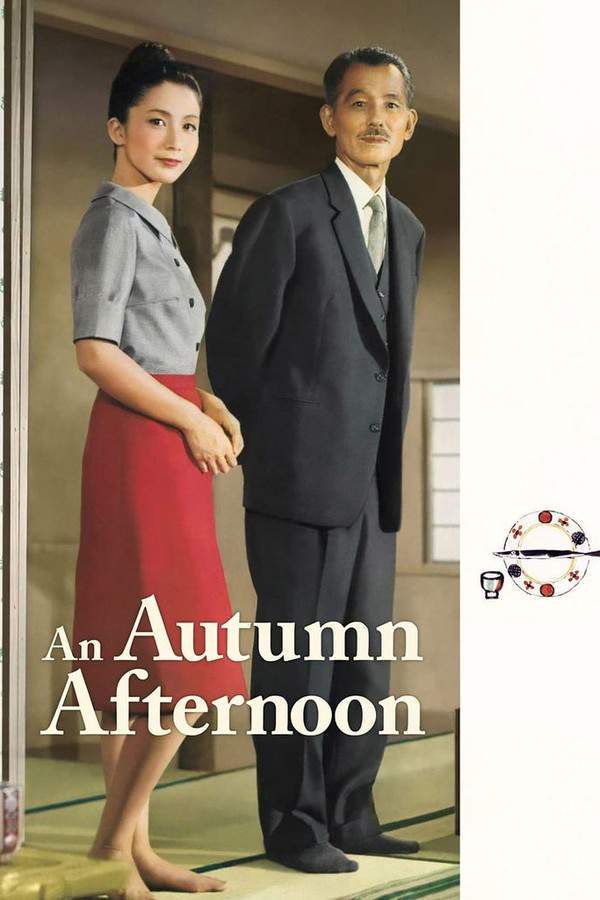
A respected businessman reflects on his family relationships as autumn arrives. Shuhei Hirayama grapples with the challenges of raising his sons, particularly his eldest, while also supporting his middle daughter’s romantic aspirations. He also attempts to mend the emotional distance with his youngest child, who carries a history of trauma. The season of change mirrors the shifting dynamics within his household, prompting introspection and a search for understanding among his loved ones.
Does An Autumn Afternoon have end credit scenes?
No!
An Autumn Afternoon does not have end credit scenes. You can leave when the credits roll.
Meet the Full Cast and Actors of An Autumn Afternoon
Explore the complete cast of An Autumn Afternoon, including both lead and supporting actors. Learn who plays each character, discover their past roles and achievements, and find out what makes this ensemble cast stand out in the world of film and television.
External Links and Streaming Options
Discover where to watch An Autumn Afternoon online, including streaming platforms, rental options, and official sources. Compare reviews, ratings, and in-depth movie information across sites like Wikipedia, Rotten Tomatoes or Metacritic.
Ratings and Reviews for An Autumn Afternoon
See how An Autumn Afternoon is rated across major platforms like IMDb, Metacritic, and TMDb. Compare audience scores and critic reviews to understand where An Autumn Afternoon stands among top-rated movies in its genre.

91
Metascore
7.8
User Score


95%
TOMATOMETER

91%
User Score
Take the Ultimate An Autumn Afternoon Movie Quiz
Challenge your knowledge of An Autumn Afternoon with this fun and interactive movie quiz. Test yourself on key plot points, iconic characters, hidden details, and memorable moments to see how well you really know the film.
An Autumn Afternoon Quiz: Test your knowledge on the poignant themes and characters of 'An Autumn Afternoon', a classic film about family, loss, and the passage of time.
What significant event shaped Shūhei Hirayama's family's past?
The 1944-45 Tokyo bombings
The sinking of the Yamato
The end of World War II
The Hiroshima bombing
Show hint
Full Plot Summary and Ending Explained for An Autumn Afternoon
Read the complete plot summary of An Autumn Afternoon, including all major events, twists, and the full ending explained in detail. Explore key characters, themes, hidden meanings, and everything you need to understand the story from beginning to end.
Tokyo, 1962. Shūhei Hirayama (Chishū Ryū), an elderly widower, navigates life with his grown children: his married son Kōichi (Keiji Sada), along with his two unmarried offspring, 24-year-old daughter Michiko (Shima Iwashita) and 21-year-old son Kazuo (Shin’ichirō Mikami). The children’s ages and their memories indicate that their mother passed away shortly before the war’s conclusion, likely during the bombings of Tokyo between 1944 and 1945. Kōichi has established a new life with his wife in a modest apartment, leaving Shūhei and Kazuo in the care of Michiko.
Hirayama enjoys regular reunions at a restaurant named Wakamatsu (“Young Pine”) with five of his former classmates, including Kawai (Nobuo Nakamura), Horie (Ryūji Kita), Sugai (Tsūzai Sugawara), Watanabe (Masao Oda), and Nakanishi. Together, they share laughter and reminisce about their younger days, with Horie often bearing the brunt of their jests regarding his new younger wife and whether he requires pills for his vitality.
One day, their former Chinese classics teacher, Sakuma (Eijirō Tōno), affectionately known as the Gourd, attends a reunion. Through a casual remark, it becomes clear that Hirayama had pursued a career as a naval officer post-school, remaining dedicated to his service until 1945. After some drinks, Sakuma, now down on his luck, is found running a modest noodle shop in a less affluent area. His daughter, Tomoko (Haruko Sugimura), missed her chance at marriage in her youth, leaving her too old to entertain such thoughts now.
Moved by their old teacher’s plight, Sakuma’s former students resolve to support him with a monetary gift. Hirayama returns to the noodle shop to deliver the aid, where he encounters Yoshitarō Sakamoto (Daisuke Katō), who recognizes him as the captain of his wartime ship. Sakamoto introduces Hirayama to his favorite bar, where the bar’s owner, Kaoru (Kyōko Kishida), strikingly resembles Hirayama’s late wife. The atmosphere becomes lively when Kaoru plays Warship March, and Sakamoto humorously enacts a military drill, singing along to the tune, invoking memories of wartime propoganda.
Meanwhile, Kōichi borrows 50,000 yen from Shūhei, pretending it’s for a refrigerator, but intends to splurge on second-hand golf clubs instead. His wife, Akiko (Mariko Okada), firmly disapproves and threatens to spend similarly on an expensive handbag if he indulges. Eventually, she softens her stance.
The Gourd confesses to his students that the choice to keep his daughter home to care for him has resulted in her lonely spinsterhood. Grieved by this revelation, Hirayama confronts his own selfishness in keeping Michiko at home and decides to arrange a marriage for her. He tasks Kōichi with inquiring if Miura (Teruo Yoshida), whom Michiko adores, might be interested. Unfortunately, Miura is already engaged, much to Michiko’s placid demeanor, but her younger brother, Kazuo, soon reveals her tears after the news breaks. Subsequently, Hirayama invites Michiko to meet a potential suitor, which she reluctantly accepts.
In one of Ozu’s classic ellipses, Michiko is soon seen clad in a resplendent wedding kimono and head-dress, indicating her acquiescence to marriage; however, neither the groom nor the wedding ceremony is depicted. After the wedding, Hirayama joins friends at a bar whilst Kōichi, Akiko, and Kazuo await his return home. Eventually, when he staggers back, inebriated, Kōichi and Akiko leave, and Kazuo heads to his room, leaving Hirayama alone.
In the poignant final scene, a tipsy Hirayama sings bits of the Warship March, concluding with the reflective words, > “Alone, eh?”
Uncover the Details: Timeline, Characters, Themes, and Beyond!

Coming soon on iOS and Android
The Plot Explained Mobile App
From blockbusters to hidden gems — dive into movie stories anytime, anywhere. Save your favorites, discover plots faster, and never miss a twist again.
Sign up to be the first to know when we launch. Your email stays private — always.
Discover Film Music Concerts Near You – Live Orchestras Performing Iconic Movie Soundtracks
Immerse yourself in the magic of cinema with live orchestral performances of your favorite film scores. From sweeping Hollywood blockbusters and animated classics to epic fantasy soundtracks, our curated listings connect you to upcoming film music events worldwide.
Explore concert film screenings paired with full orchestra concerts, read detailed event information, and secure your tickets for unforgettable evenings celebrating legendary composers like John Williams, Hans Zimmer, and more.



Unlock the World of Movies with Our Comprehensive Wiki
Dive into our Movie Wiki for in-depth film encyclopedia entries, including cast biographies, production trivia, plot synopses, behind-the-scenes facts, and thematic analyses. Whether you’re researching iconic directors, exploring genre histories, or discovering hidden easter eggs, our expertly curated movie database has everything you need to fuel your cinematic passion.

Articles, Reviews & Explainers About An Autumn Afternoon
Stay updated on An Autumn Afternoon with in-depth articles, critical reviews, and ending explainers. Explore hidden meanings, major themes, and expert insights into the film’s story and impact.
Quick Links: Summary, Cast, Ratings, More

What's After the Movie?
Not sure whether to stay after the credits? Find out!
Explore Our Movie Platform
New Movie Releases (2025)
Famous Movie Actors
Top Film Production Studios
Movie Plot Summaries & Endings
Major Movie Awards & Winners
Best Concert Films & Music Documentaries
Movie Collections and Curated Lists
© 2025 What's After the Movie. All rights reserved.



